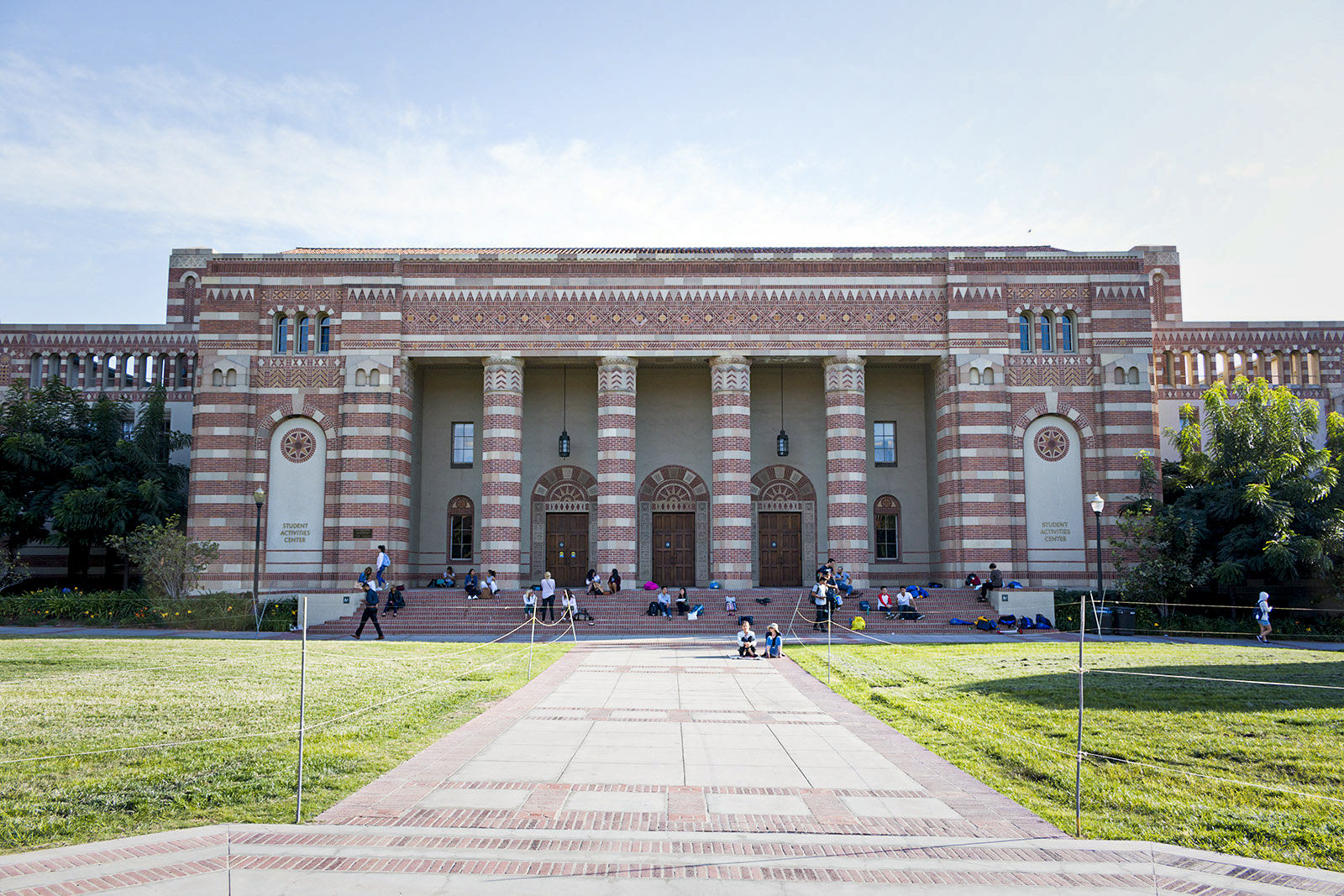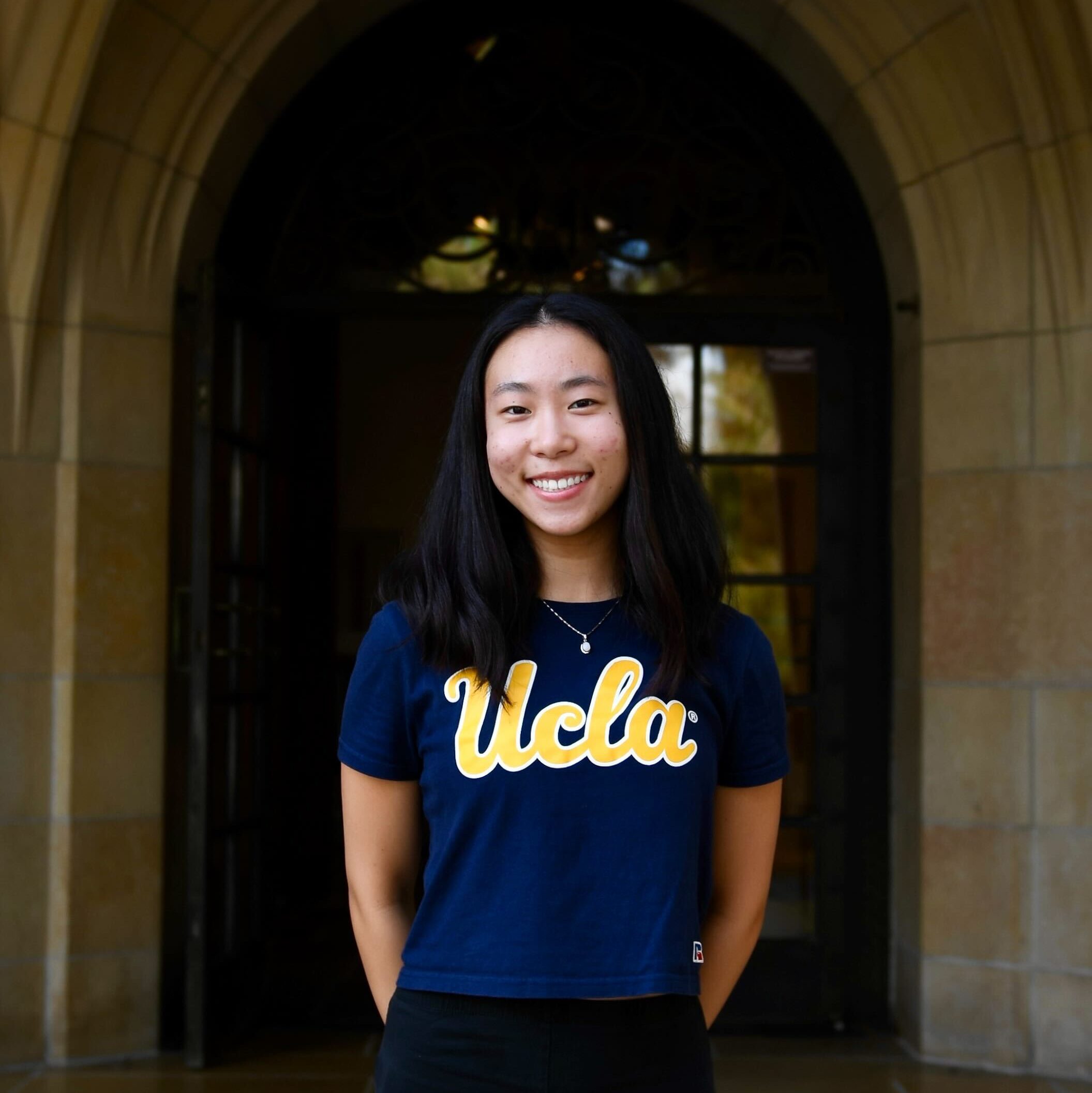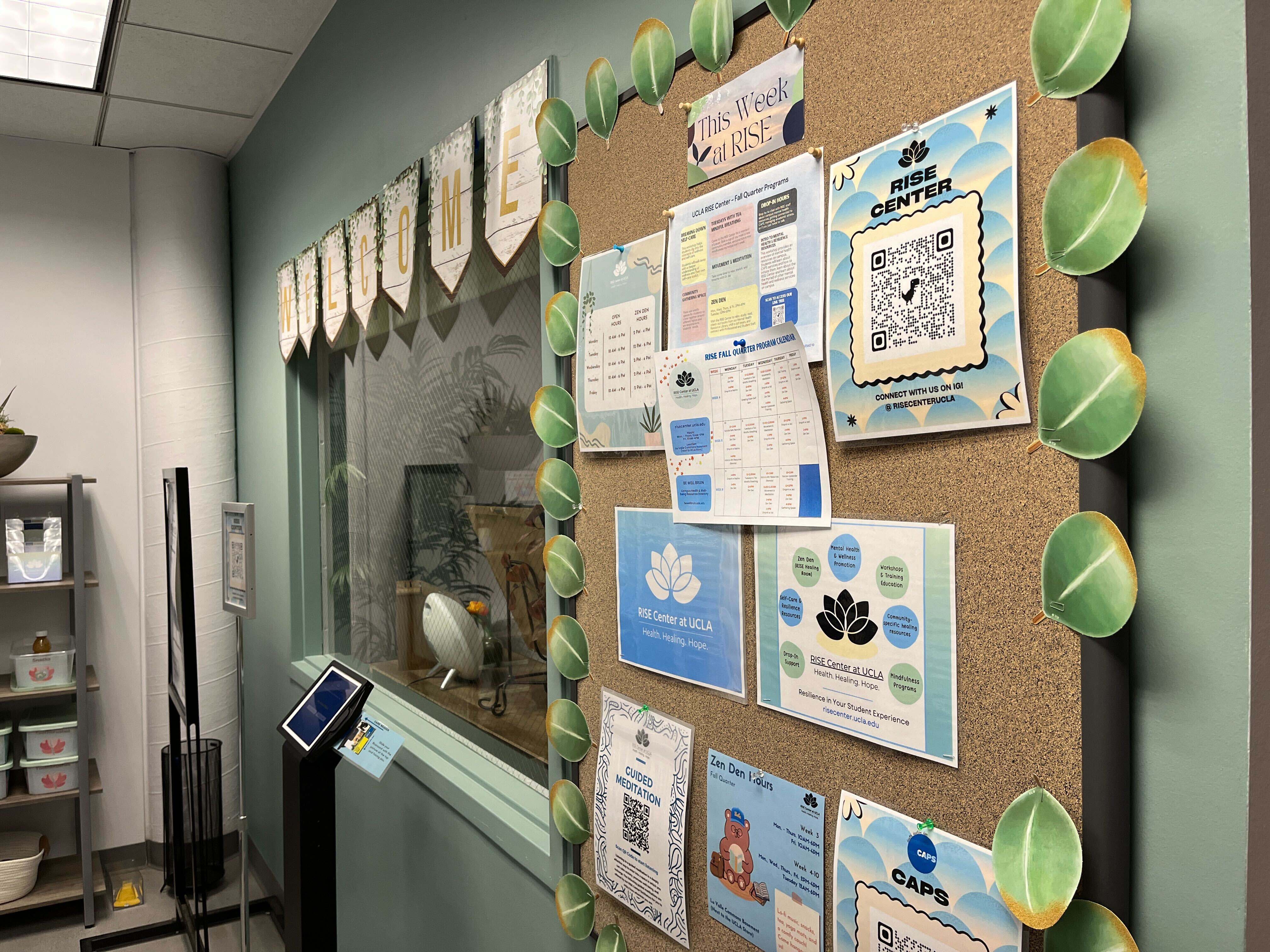Neurodivergent students create community through Bruin Neurodiversity Collective

The Student Activities Center, which houses the Bruin Resource Center, is pictured. The Bruin Resource Center has collaborated with students to create the Bruin Neurodiversity Collective, a student organization created by neurodivergent students to advocate for and bring together the neurodivergent community at UCLA. (Daily Bruin file photo)

By Catherine Wang
Feb. 21, 2024 6:05 p.m.
This post was updated Feb. 21 at 11:29 p.m.
Being a first-year poses its own challenges, but for Ryan Neale, navigating them as an autistic student with ADHD left him feeling isolated and overwhelmed.
“It was really hard for me to focus in class and keep on top of my self-care,” Neale said. “I was struggling to have the social energy and stamina and bandwidth to invest in joining clubs and building relationships.”
A year later, Neale – now a second-year communication and disability studies student – is a co-founder and student coordinator of the Bruin Neurodiversity Collective. Neale said BNC serves and is led by neurodivergent students, a term that describes those with different neurological development and function from neurotypical individuals.
“There are orgs like All Brains and Autism Advocacy that do great work, but they’re primarily advocacy groups, and they’re run in part by neurotypical students,” Neale said. “It takes away from the safe space element of it, where even if you have allies, it’s not the same as having a community where everyone in it has that identity.”
Unlike other organizations that serve neurodivergent students on campus, Neale said BNC also collaborates with the Bruin Resource Center, which provides it with administrative support for funding and connects it to other campus organizations.
The BRC was already interested in building more support infrastructure for neurodivergent students, said BRC Director Andrew James-McClure. He added that a few years ago, he and former director Paolo Velasco had attended training opportunities and conferences on the topic.
James-McClure said when he assumed the role of director last May, he also met with members of the Neurodiversity Empowerment Team – consisting of staff from the Center for Accessible Education, the Arthur Ashe Student Health and Wellness Center, and UCLA Counseling and Psychological Services – to continue the conversation.
Neale said he became involved in creating BNC after meeting counselors to address his struggles with academics and getting support from the CAE. The center’s director, Spencer Scruggs, then invited Neale to work with the BRC on the ongoing initiative.
Neale said he joined the effort after being onboarded as a student worker for BNC last fall. However, setting an agenda for BNC from scratch was difficult, he said.
“I was thinking in front of a blank Google Doc being like, ‘How do I fix neurodiversity?’” Neale said. “This seems like a really big undertaking for one person, and luckily, Andrew was instrumental in getting us through that first quarter.”
BNC officially launched this quarter. Neale said the organization hosted a town hall Jan. 30 where neurodivergent students could voice their thoughts to administrators, including James-McClure, Scruggs and Assistant Vice Chancellor for Student Development & Health Suzanne Seplow.
“I made certain to have members of administration present – so not just myself and other coordinators, but Andrew, Spencer, Seppy (Seplow) … and some reps from ResLife (UCLA Residential Life) – to really convey the message that this isn’t just a virtue-signaling presentation,” Neale said.
At the town hall, students discussed topics including the difficulty of getting single rooms during housing applications, the understaffing of CAE and having professors who were not as receptive in giving accommodations.
Some students noted the irony of how difficult it is to manage the appointments and paperwork for accommodations when many of the students needing these accommodations struggle with executive functioning in the first place, Neale said. He added that the organization and the administration will use the input given to plan more initiatives and determine what resources are needed.
BNC has also begun holding social events. Though Neale said he was nervous that people would not come, about a dozen people showed up. He added that he enjoyed seeing how students were open about their interests and hyperfixations since they knew that they would not be judged.
Olivia Mosesman, an autistic and ADHD member of the organization, said BNC’s neurodivergent-centered community appealed to her because she wanted to be part of a community that accepts who she is.
“A lot of autistic people do what’s called ‘masking,’ where they try and appear neurotypical in a social setting to be more accepted by them and to make friends,” said Mosesman, who is also a fourth-year public affairs student. “I’ve never heard of an autistic person enjoying this. … I decided, ‘OK, I want to unmask.’”
One of BNC’s first members, second-year pre-applied mathematics student Olivia Hara, said she wanted to ensure BNC made accommodations for sensory sensitivities to things such as the smell of food or certain sounds.
“With autistic people, ADHD people, just generally neurodivergent people, hearing what seems like little things to others – whether it be smells or sounds, whatever – seems like nails on chalkboard,” Hara said. “It’s amplified ten thousandfold.”
Neale said BNC also manages a Discord server where around 100 members chat about topics including medication, school advice, musicals and sports. Neale added that though several BRC-affiliated student organizations use Slack, Lauren Wall and Nicole Wasserman, the two other BNC student coordinators, insisted on using Discord for a more laid-back environment.
Hara said the server allows members to schedule meetups with each other. For instance, she said, if a person feels alone or has trouble eating, they can find other available people to join them.
“Even if it (BNC) didn’t exist as a physical meeting, the Discord itself, where it gathered all of these neurodivergent people, was really helpful,” Hara said. “Then you have people to vent to of, ‘Hey, I’m having this sensory issue, can anyone relate?’ or ‘What did you do to deal with it?’ … It’s like autistic Google.”
Dani Solis, a graduate student in education and BNC member, said they hope to expand the organization to the Graduate Student Resource Center, adding that they have encountered obstacles because of their neurodivergence while searching for jobs.
“I remember an interviewer asked, … ‘So how would you be able to be a teacher if you were autistic?’” said Solis, who is autistic and has ADHD. “I would love to say it’s just that person, but there’s been a lot of people who have said that, or … they really micromanage or try to baby me.”
Neale said BNC has plans to build a network among neurodivergent alumni to help students with disabilities navigate the job market, adding that the BRC can help connect BNC to alumni organizations.
James-McClure said the BRC could implement an onboarding for neurodivergent students during the summer to help them better acclimate to campus. He added that the BRC is also working to hire a full-time staff member to assist with the Neurodiversity Empowerment Team.
Neale said he hopes BNC will make a significant impact on the neurodivergent community at UCLA.
“I hope that in five or so years down the road, UCLA and the UC system could eventually be somewhere that neurodivergent students know to come to, that they know that there will be resources and community and support,” Neale said. “It can eventually even serve as a model for other institutions because what UCLA does, the country follows.”




